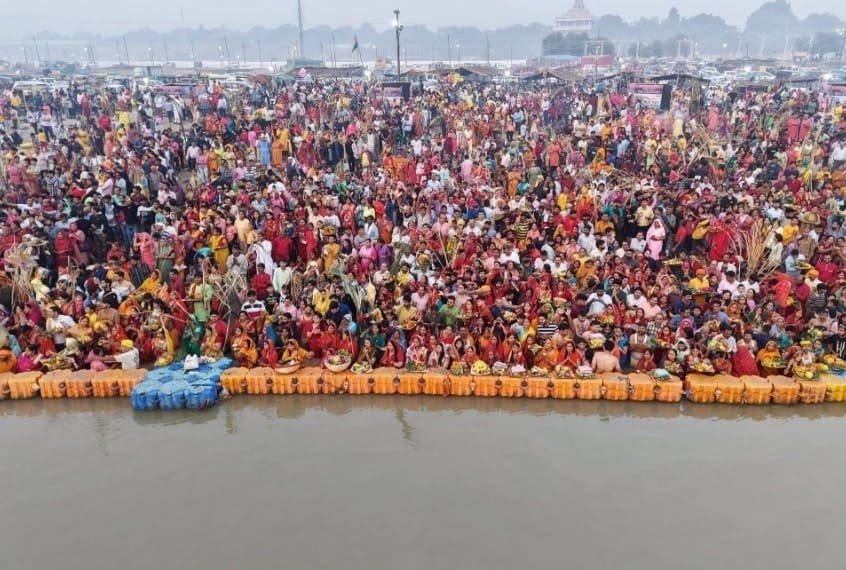
New Delhi, Jun 26 (IANS) Leader of the Opposition (LoP) in Lok Sabha Rahul Gandhi’s persistent demand that ECI should provide machine-readable digital copies of the voter lists for the 2024 Lok Sabha elections and subsequent Vidhan Sabha elections appears to be legally untenable, said constitutional experts and sources on Thursday.
An earlier Supreme Court verdict has already settled the matter in favour of the Election Commission of India. They suggest that LoP Rahul Gandhi’s repeated attempts to rake up the demand for ‘machine-readable digital copies’ are nothing more than a publicity stunt, as the apex court has already ruled against such a demand.
In 2018, Congress leader Kamal Nath, the then president of the Madhya Pradesh Congress, had petitioned the Supreme Court seeking direction to provide soft copies of the draft electoral rolls published in text format, along with several other prayers.
The verdict delivered by a then Bench of Justices AK Sikri and Ashok Bhushan opined that the format in which the draft electoral roll is supplied to the petitioner fulfils the requirement contained in the Election Manual.
“We find force in the submission of ECI. Clause 11.2.2.2 of the Election Manual uses the expression ‘text mode’. The draft electoral roll in that mode, i.e. text mode, has been supplied to the petitioner. The clause nowhere says that the draft electoral roll has to be put up on the Chief Electoral Officer’s website in a ‘searchable PDF’,” it added.
The apex court said that if the petitioner so wants, he can always convert it into searchable mode at “his own efforts”. In its affidavit filed before the Supreme Court, the poll panel argued that it has taken a conscious decision not to give copies of the voter list to the political parties in scannable text mode, keeping in view the issue of privacy of voters.
The Election Commission said that the recognised political parties are supplied, free of cost, two copies – one hard copy in pdf with image of electors and another in soft copy without image of electors – of the electoral roll of the constituencies at the time of draft publication and final publication under the Registration of Electors Rules, 1960.
Even unrecognised registered political parties, NGOs or the public can obtain a soft copy of the electoral roll, without images of electors, in a CD in PDF format at a nominal price of Rs 100 only per CD, added the poll panel.
Observing that “there is no doubt about the bona fides of the ECI”, the Supreme Court, in its judgment, had said that “people of the country, by and large, trust this institution for its impartial manner of discharging its functions.”
Interpreting phrase “text mode” in the Election Manual, the apex court said that it meant that the draft electoral roll put up on the official website will only contain “text” of the elector’s details and not his/her “photographs/pictures/pictorial content” and the nowhere required that the draft electoral roll has to be uplaoded in a “searchable PDF”.
It said, “The petitioner cannot claim, as a right, that the draft electoral roll should be placed on the website in a ‘searchable mode’. It has only to be in ‘text mode’ and it is so provided.”
The Supreme Court said that the Election Manual did not entitle the petitioner to get the draft electoral roll in text mode, which is searchable as well, and it is for the ECI to decide about the format in which the draft electoral roll is to be published.
It found force in the poll panel’s submission that the move is aimed at the prevention of voter profiling and data mining, and the ECI is duty-bound to take all precautionary measures to ensure of privacy of voters.
Insiders in the Election Commission have shed light on the apex court judgment in the backdrop of LoP Rahul Gandhi’s allegation of “fixed election” in Maharashtra last November and the Election Commission’s invitation to him to sit for a doubt-clearing session, an offer which he has not accepted yet.
“While it is factually correct that Rahul Gandhi, Leader of the Opposition, has been demanding a machine-readable, digital copy of the electoral roll for the last seven months, such a demand by the Congress is not new,” said an official source.
The demand, it seems, is part of a strategy by the Congress for well over eight years, a fact that appears to have been selectively obscured in the present representation, he said.
“The position historically maintained by the Indian National Congress is not tenable within the contours of the prevailing legal framework. It may be recalled that this very issue has already been agitated by the Congress before none other than the highest constitutional court of the country,” he said.
–IANS
pds/dan






